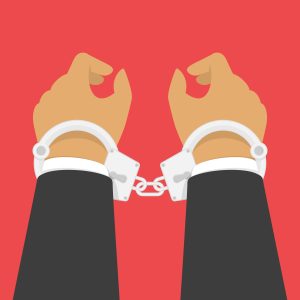 Being arrested can be frightening and stressful. You might not know your rights or what to do next.
Being arrested can be frightening and stressful. You might not know your rights or what to do next.
Fortunately, you can hire an experienced criminal defense lawyer to represent you. Your lawyer can guide you through the complex legal process and create a strategy to defend you against the charge or charges that you face.
Your Rights After Being Arrested
The police officer is supposed to inform you of your Miranda rights when they arrest you. There are four Miranda rights:
- You have the right to remain silent – You should assert your right to remain silent following your arrest. That means you don’t have to answer questions law enforcement asks you. You do have to identify yourself and inform them that you understand your rights after they read them to you. However, you don’t have to speak with them about the alleged crime.
- Anything you say can and will be used against you in a court of law – This means the prosecutor can use your statements against you at trial. You shouldn’t try to explain what happened or talk your way out of criminal charges during police questioning.
- You have the right to a lawyer – You also have a right to hire an attorney after getting arrested. Once you assert this right, law enforcement must allow you to make a reasonable effort to contact a criminal defense lawyer. Your lawyer can also be with you during any questioning.
- If you cannot afford a lawyer, one will be appointed for you – Public defenders represent defendants who can’t afford to hire an attorney.
Stages of the Criminal Process After an Arrest
 The process that follows an arrest will depend on the type of criminal case you have. However, many follow the procedure below.
The process that follows an arrest will depend on the type of criminal case you have. However, many follow the procedure below.
- Booking – Law enforcement brings you to the station for booking. They will obtain your information and fingerprints.
- Pre-Trial Detention Hearing – If charges are filed against you, a Judge will decide whether you’ll be held in jail during your case or released with certain conditions.
- Preliminary hearing – You must attend a hearing to be formally charged for a felony crime. During a preliminary hearing, the prosecutor presents a summary of the evidence to a judge usually by having the police officer testify. The judge will determine if there's probable cause that you committed the offense. A grand jury hearing involves a group of citizens that determine whether there is probable cause for the charges.
- Arraignment – Before the trial begins, you must attend an arraignment. The judge will inform you of the charges you face and possible sentencing if convicted. At that time, you must enter a guilty or not guilty plea.
- Trial or negotiations – Once you enter your plea, your attorney and the prosecutor will then likely enter into negotiations to see whether a deal can be reached to avoid a trial. If no deal can be reached, then your attorney will prepare for the trial. They can gather evidence, file motions with the court, and build their cases.
- Trial – If the case proceeds to trial, you are able to choose whether you want a jury trial or a bench trial. The jury determines the verdict during a jury trial. In a bench trial, the judge makes the final decision.
- Verdict – The jury will deliberate, or the judge will review all the information presented to them and issue a verdict. If the verdict is not guilty, the case is over, and you are free to go.
- Sentencing hearing – If the verdict is guilty, you must attend a sentencing hearing. The judge will impose a sentence based on sentencing guidelines and other factors.
- File an appeal – You could file an appeal if you believe an error led to an unfair sentence or wrongful conviction.
It’s usually best to have a private criminal defense attorney firm, such as Sexner & Associates LLC, handle all legal aspects of your case for you. Although depending on your income, the court may be willing to provide you with a public defender, public defenders are often overworked and might not have time to review all the necessary information to create an effective defense strategy. An experienced criminal defense lawyer will have the experience and resources to explore all options and determine the method that can best achieve your goals.
Contact an Experienced Illinois Criminal Defense Lawyer Today
Mitchell S. Sexner & Associates LLC has fought for the rights of our clients since 1990. We believe everyone arrested for a crime in Illinois deserves quality legal representation. We will provide the support and guidance you need to help you through this overwhelming experience.
Call the Chicago criminal defense attorneys of Mitchell S. Sexner & Associates LLC at (312) 644-0444 immediately if you were arrested for a criminal offense. Let us plan your defense and try to get your charges reduced or dropped. Our phone lines are open 24/7 to assist you.
